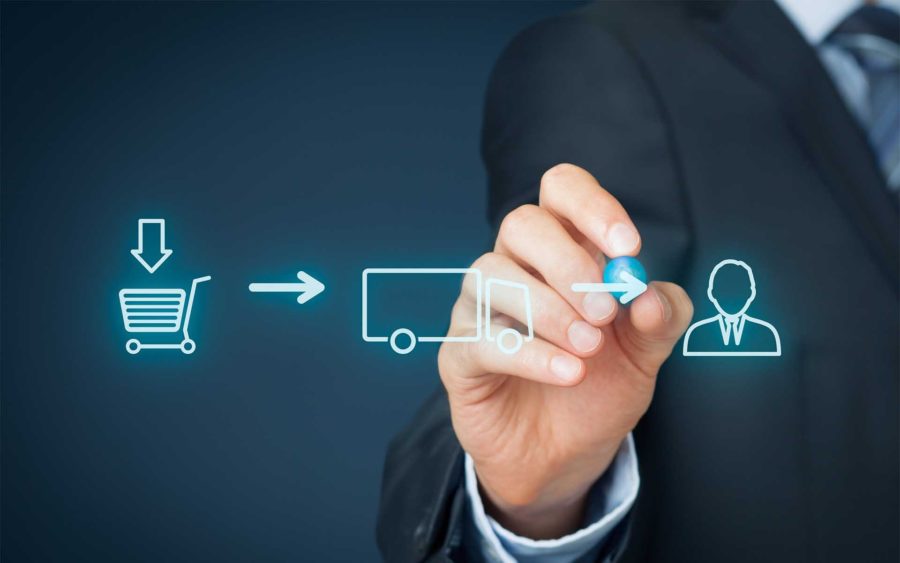
For today’s millennial consumers, timeliness of deliveries ranks high on the list of requirements for customer satisfaction. In fact, in a study of 3,000 consumers in the United States, Canada, and the United Kingdom, conducted by e-commerce company Radial, over one-third — 39.7% — of respondents ages 18 to 24 said that speed of delivery is their main concern when shopping online.
These respondents also reported that they were frustrated by the speed of deliveries in general. The study found that 59% of millennials said that orders were consistent in their timeliness and also in “perfect condition.” This means that about 40% of respondents experienced issues with online order deliveries. The survey noted that younger customers are generally “more critical of delivery and fulfillment orders than their older counterparts.”
These are important findings, as e-commerce retailers must fully consider millennials’ experiences and expectations; this group makes up a large portion of the e-commerce consumer base and is very particular regarding deliveries. This may be due partly to the fact that millennials grew up with e-commerce and consider it the norm, as opposed to older consumers who may still view online ordering as novel or luxurious, and therefore have lower expectations.
KEY STUDY FINDINGS
Some other important findings are discussed below.
• Respondents from all geographical locations and age groups said they prefer having packages delivered to their doorsteps, as opposed to picking up packages from lockers, having a proxy signer nearby, or allowing delivery companies direct access to their homes.
• An average of 36.8% of respondents said they prefer items to be delivered in environmentally friendly packaging. Baby boomers and millennials made up the majority of this percentage.
• In the 18-to-24-year-old range, 33.5% of respondents said they have been frustrated by deliveries taking too long to arrive.
• Of all respondents in the 18-to-24-year-old age group, 20.6% said they didn’t feel the high costs associated with expedited delivery were worth the added convenience.
• In the 18-to-24-year-old age group, 12.6% of respondents said they were concerned about package theft.
• Almost half of all survey respondents reported that they pick up items in stores after ordering online. These numbers were highest in the United Kingdom and Canada.
• Only 8.7% of Americans said that they would consider utilizing automated delivery if it relied on Internet of Things (IoT) tracking tools. However, 35.2% of millennials said that they would consider this.
WHAT THE RESULTS MEAN FOR ONLINE RETAILERS
These findings may be useful in guiding online retailers through today’s ever-evolving e-commerce landscape. The responses gathered show that timeliness and affordability — and, increasingly, eco-friendly, sustainable packaging — are consumers’ biggest concerns. But many retailers are still placing most of their efforts on garnering new customers and front-end marketing.
It’s critical for online retailers to consider the long-term effects of fulfillment problems and focus on improving fulfillment before deliveries are made. Today, many advanced systems and tools are available for improving warehouse automation and inventory accuracy, and retailers must take advantage of these options.
With another recent study conducted by AlixPartners showing that the average U.S. customer is willing to wait only four and a half days for a delivery, down from five in 2012, these tactics are more important than ever. The same study, which surveyed 1,000 U.S. consumers, also showed that nearly third-fourths of respondents want their deliveries to be free of charge.
With e-commerce giants like Amazon offering free delivery services, consumers’ purchasing expectations have shifted over time, with many expecting both affordability and speed. Stock-outs and delayed shipments, for instance, often cause customers to abandon their shopping carts and turn to competitors for better deals and delivery terms.
Localized shipping may benefit some companies looking to shorten their delivery timelines, and some businesses may do well to partner with third-partner technology companies for tracking big, bulky items like furniture.
LOOKING AHEAD
The e-commerce space is evolving quickly, and retailers must take care to consider consumers’ shifting expectations, especially when dealing with younger shoppers.
With many new advanced technologies and systems available today, these online retailers have a wealth of options at their disposal, and must carefully consider the best course of action for their unique goals and needs.
https://www.inboundlogistics.com/

